Life Is Strange: True Colors has been out for a few days now and is currently up there as one of Twinfinite’s Game of the Year contenders. Alex’s empath powers enhanced both the gameplay and narrative and the quaint mountainside town of Haven Springs, Colorado had plenty of secrets and mysteries for players to uncover.
But in true fashion for the series, True Colors’ teen drama was punctuated with a fantastic selection of music. A mix of indie hits from the likes of Kings of Leon and Novo Amor, alongside an entirely original soundtrack from folk duo Angus and Julia Stone. We were fortunate enough to sit down with one half of the duo, Julia Stone, to talk about their work on the True Colors’ soundtrack, how it differs from an ordinary album, the toxic beliefs in our culture, how Alex’s adventure helped challenge these, and the process of weaving the Life Is Strange series’ emotive themes into an original score.
Guides Editor Chris Jecks: How do these collaborations end up coming together? Are you and Angus fans of the series following the inclusion of Santa Monica Dreams in the first title, and was this an opportunity you were hoping came your way or did you reach out to Deck Nine with the offer?
Soundtrack Composer Julia Stone: Every collaboration is different. Our first interaction with Life Is Strange, the game, was with the very first episode ‘Chrysalis. They used a song of ours called ‘Santa Monica Dream’ in a really sad moment.
We knew that the song was in this scene but it wasn’t until we started meeting ‘Life Is Strange’ fans at shows that we understood how far-reaching the game is. We were playing shows all over the world and someone would pop up almost everywhere saying ‘I heard your song on Life Is Strange’ – that was really sweet.
A few years later the game reached out to us to talk about doing a whole lot of the music for this new Episode ‘True Colors’ – and it immediately felt like a good fit.
It wasn’t something we expected to be doing but Alex, the character who we were predominantly writing for, was someone we both related to and felt we could give her emotional world and journey a soundtrack.
Chris: Can you run us through the collaborative process you take for composing a soundtrack for a game as emotive and beloved for its music as Life Is Strange: True Colors?
Julia Stone: Every song was different. Sometimes they’d (Square Enix/DeckNine) send us a brief and then they’d send us these, they call them ‘zen moments’ in the gameplay. Moments where the player will stop and go into this movie part of the game that shows a bit of the emotional arc of the story. We’d come into the studio, sit down with a cuppa and we’d watch that scene… talk about how we would approach this moment, ya know, what sort of sound and emotion to put behind it.
At other times, we dug back through old songs that hadn’t really lived the life they’d deserved. We built these new worlds around them that tied into the feeling of the soundtrack.
Other times in the studio we’d just start writing a song like we normally would and then find a place for it in the game.
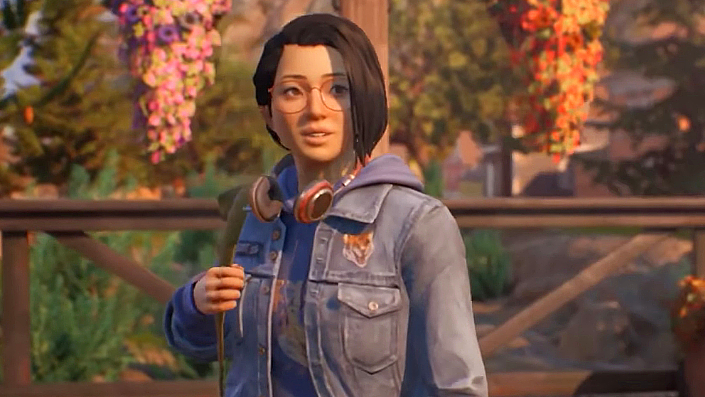
Chris: Were there any big differences between producing a soundtrack for a game and producing an album for your fan base and the mainstream music world, and were there any unexpected challenges/obstacles you came across while doing so?
Julia Stone: In terms of any challenges that were presented …. Well, games go for a lot longer than movies or TV shows, so we wrote a lot of songs for the game. Like, we’d think we’d be writing the end of the soundtrack and they’d say, here’s another scene… and we need a song for it… and we’d have 13, 14, 15 16 songs—- I think we ended up with 18 songs for the game. It was a lot. We only put 12 out on the record but there is more music involved in the actual game.
It’s good for us to have deadlines. Making records together we don’t really have that. It just gets finished when it’s finished, so that was new for us. We found that when you just push that little bit further, something happens that you can’t imagine would happen if you hadn’t……. and yeah, some cool things happen from that… Pressure makes diamonds.
Chris: How much freedom did you have in the creative process in order to make a soundtrack that both yourself and Angus were happy with, while also hitting the sound that Deck Nine were seeking for particular scenes and moments throughout Alex’s adventure?
Julia Stone: They gave us complete freedom to create the music the way we felt right. On a couple of occasions, they came back to us about a lyric that didn’t feel right for the moment- and we would adjust it- or they’d ask us if we could speed a song up/slow it down for the momentum of a scene.
Those things were really easy to adjust so it made that side of things really enjoyable. I love that they trusted us. Makes the working relationship very respectful and flowing.
Chris: It’s fascinating to see that the warm, artistic or indie style of Life Is Strange has become so distinct that it’s taken on a life of its own at this point, even to the extent of attracting indie-folk band Daughter for the soundtrack of Before the Storm, and now yourself and Angus for True Colors. What do you think it is about the franchise that lends itself so well to that genre of music?
Julia Stone: I think because the game is about real human emotional journeys & indie music/singer-songwriter is predominantly dealing with similar themes. Feelings of wanting to belong, loss, love, hope, grief, pain, relationships, confusion…. The two worlds fit so perfectly together.
Chris: Life Is Strange deals with a lot of interpersonal themes surrounding relationships, friendships, and family ties. True Colors’ main theme is empathy; how do you weave these themes into your music? Do you feel like you’re mainly taking inspiration from the game’s story and narrative, or is it easy to look at these themes broadly and take inspiration from your own personal lives and surroundings?
Julia Stone: For us, it was great to write from her perspective, the main character, Alex. It’s kind of nice as a songwriter to be put in a position where you have to think, ‘what would it be like to be going on this journey? what would it be like to be in this situation? what part of my experience is like this persons?’
Thinking like that as a songwriter also plays into our own experience of empathy, which was pretty cool considering the whole game is about empathy. I mean, empathy in its essence, is allowing yourself to feel the same emotion that someone else is going through- to sit with them in that- and so your presence, words, etc. come from understanding. It felt like we were kind of writing a record for her and for ourselves at the same time.
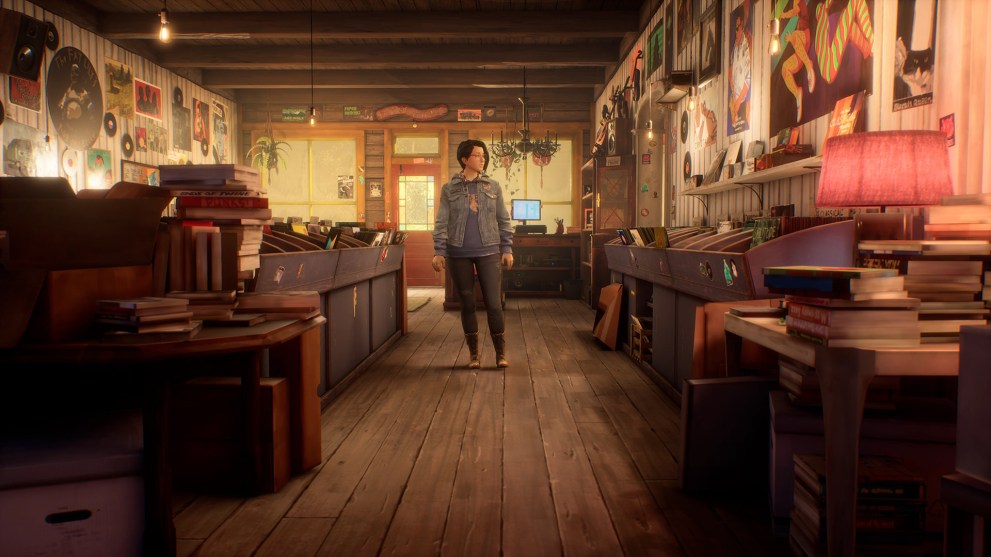
Chris: From an artist’s perspective, what qualities do you think make a track a good fit for the series?
Julia: I would have to say ‘heartfelt’ comes to mind. Songs that brim with emotion. I feel like the game has always done such a great job of choosing music to amplify the already heightened experiences of the characters in the game. So yeah, any track/song like that.
Chris: In an interview with the Independent in April this year, you talked about how you wanted to write love songs that challenge “the toxic belief in our culture that tells us to keep looking for the bigger, better deal.” Do you think True Colors’ big focus on empathy meshes well with your desire to challenge that toxic belief? After all, being able to empathize with the people around you also means that you’re making an attempt to understand and relate to them on a deeper level. I would imagine that being able to relate with a romantic interest more closely, for instance, would give you more of an opportunity to appreciate their beauty and qualities instead of constantly thinking that maybe you could do better?
Julia Stone: Yes, I think there is a tie-in.
I would say a big part of Alex’s journey is self-acceptance. When we don’t accept ourselves, unhealthy desires can spring up in all kinds of ways.
Our incessant desire for ‘more’ in whatever form that takes comes from insecurity about not really being that great, special or loveable. It’s so often that we think ‘when I find *that person, who makes me feel that way, then I’ll be okay’- and so the cycle continues.
Accepting yourself with all your brilliance and all your flaws is what makes everyone loveable. An intimate relationship is where I think we can see how easily you can blame someone else for not feeling accepted or special. You rely on them to make you feel a certain way and when that stops happening for whatever reason, it’s like a drug, you need someone new to renew that belief in yourself that you are special. When you just accept yourself with your imperfections you can do that with others and continue to love someone and their complexities in a deeper and richer way.
Chris: Has Alex’s psychic power of Empathy played a part in shaping the ‘sound’ of the soundtrack for True Colors? And was this ‘supernatural power’ something that resonated with you given your belief that the best relationships are those where you truly learn about someone, “to connect on deeper levels and find out what really scares or moves somebody.” Was this something you kept in mind when composing the tracks?
Julia Stone: For sure. It is, empathy, at the heart of the game and so it was always there when we were writing. I think songwriting organically has a foundation of empathy just because of the nature of what it is.
Making music, particularly when you’re creating with other people, relies on the capacity to connect on that deeper level and feel what each other feel about being in the world. Angus and I are really lucky that we have that connection and that understanding of each other’s emotional realms and life experiences.
Chris: In an interview with ABC’s Triple J, you mentioned the record turned into a real mix of your old ‘folky side of writing songs’ and new sounds from both of your solo projects. In what way do you think your solo projects have impacted this latest collaborative effort? (is there a particular sound, style, or technique you feel is particularly prominent?
Julia Stone: The solo projects are places where we are expressing ourselves independently of one another- and in those zones, we do create different styles of music.
I know for me, I developed skills making my own records that I then brought to the table with Angus. Sometimes it’s as simple as a new way of phrasing or singing- other times it can be knowing about a new plug-in that has a great effect.
Every record we make (together or apart) adds to the record that comes next.
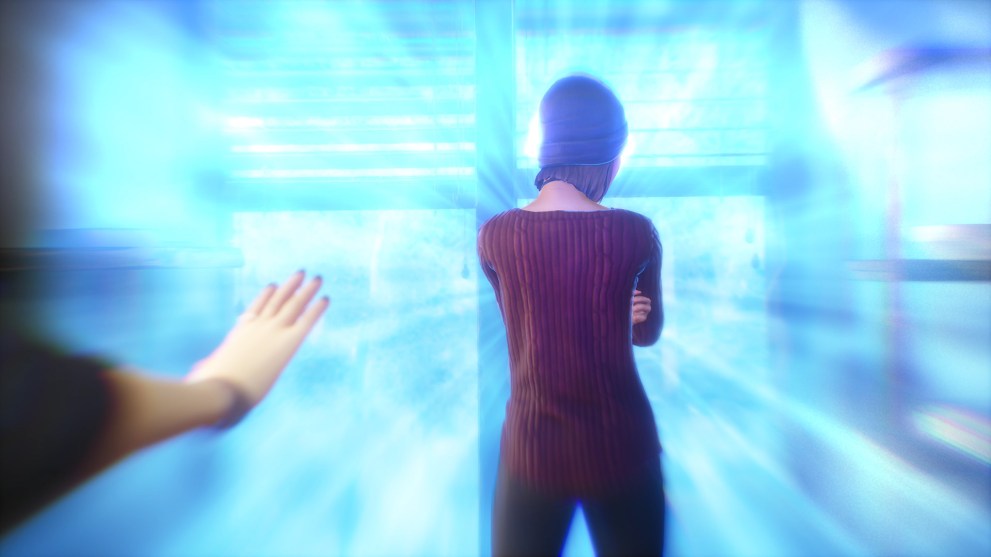
Chris: The Life Is Strange soundtrack marks yours and Angus’ first studio album together since 2017’s Snow and your decision to focus on your solo careers. How does it feel to have released a new album, and had you always planned to work together again in the future?
Julia Stone: I think the key to us working together this long is we don’t really plan. We trust that if we are going to work together again, we will both feel like doing that- or something will come up that makes sense and push us back together.
There are no plans at the moment, but it feels really great to have put this record out. We are both so proud of the songs and we had such a brilliant time making this record. It gets more and more fun with each record.
Chris: Any personal favorite scene and soundtrack combos from the Life Is Strange: True Colors soundtrack? Is there a particular song you feel just knocks the ‘feel’ of a scene out of the park that fans should be listening (and looking) out for?
Julia Stone: Hmm. I think the song that really makes me feel so much at the moment is ‘Tears’ – ‘how to smile with tears in your eyes.’
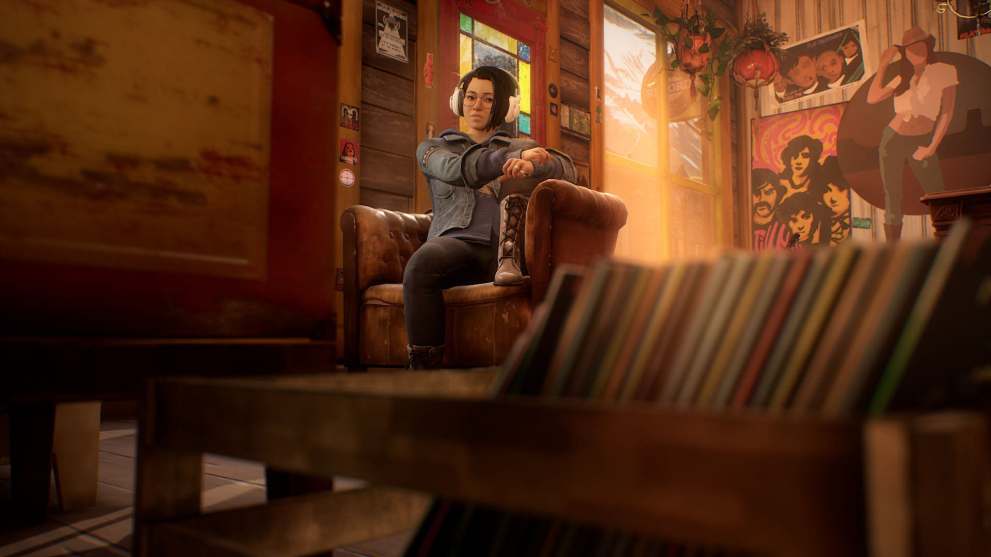
Chris: Do you have any favorite characters from the series as a whole?
Julia Stone: I have to say Alex because we lived with her for so long and I have been on the voyage with her. I also was lucky enough to meet the actress who played Alex, Erika Mori. She is such a delightful and talented human and had so much to bring to the character.
Chris: Was there any change in your creative and collaborative process with the emergence of COVID-19 in 2020 and the lockdowns around the world that came as a result? And what difficulties, if any, did this pose?
Julia Stone: Fortunately for us, we had almost finished the album by the time the pandemic was in full swing. We had to finish a few bits and pieces, mixing/mastering and so on but that side of things isn’t too difficult to do at a distance. We released it in the pandemic and that feels like a really great thing, in the sense that it’s so nice to offer people who like our music something to take them into a different universe for a some moments in time.
Life Is Strange: True Colors is out now on Xbox One, Xbox Series X|S, PS4, PS5, PC, Google Stadia, and GeForce NOW. You can listen to Angus & Julia Stone’s Life Is Strange album on Spotify and Apple Music now.

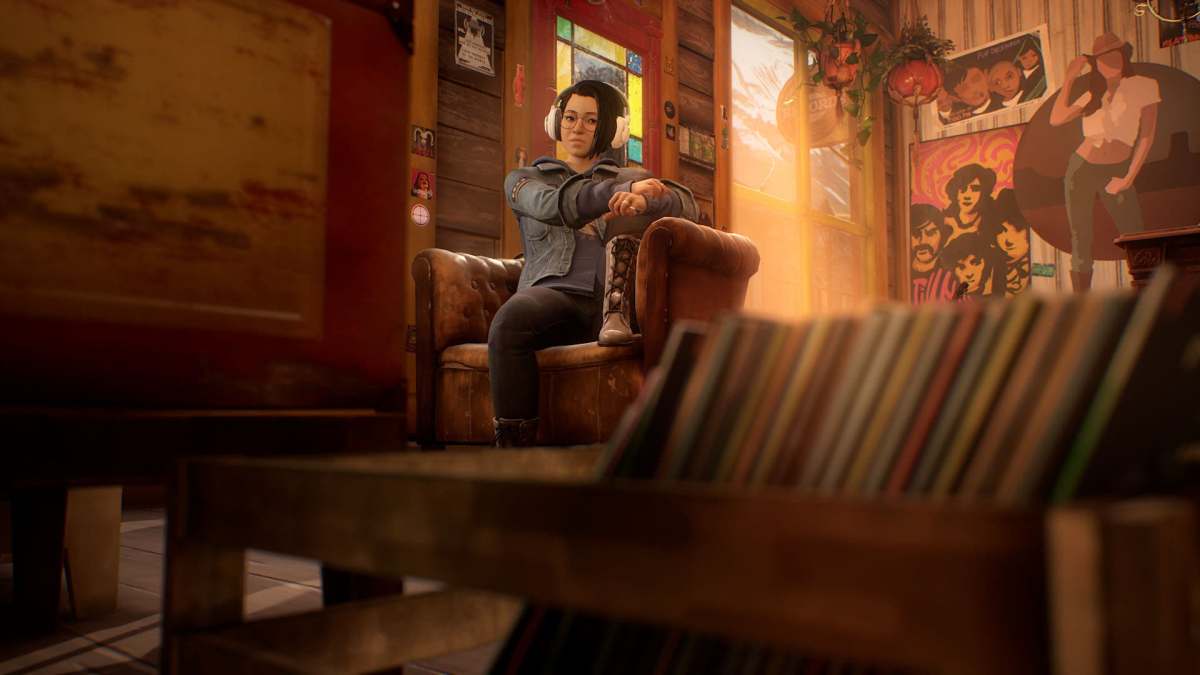











Updated: Sep 15, 2021 05:31 pm